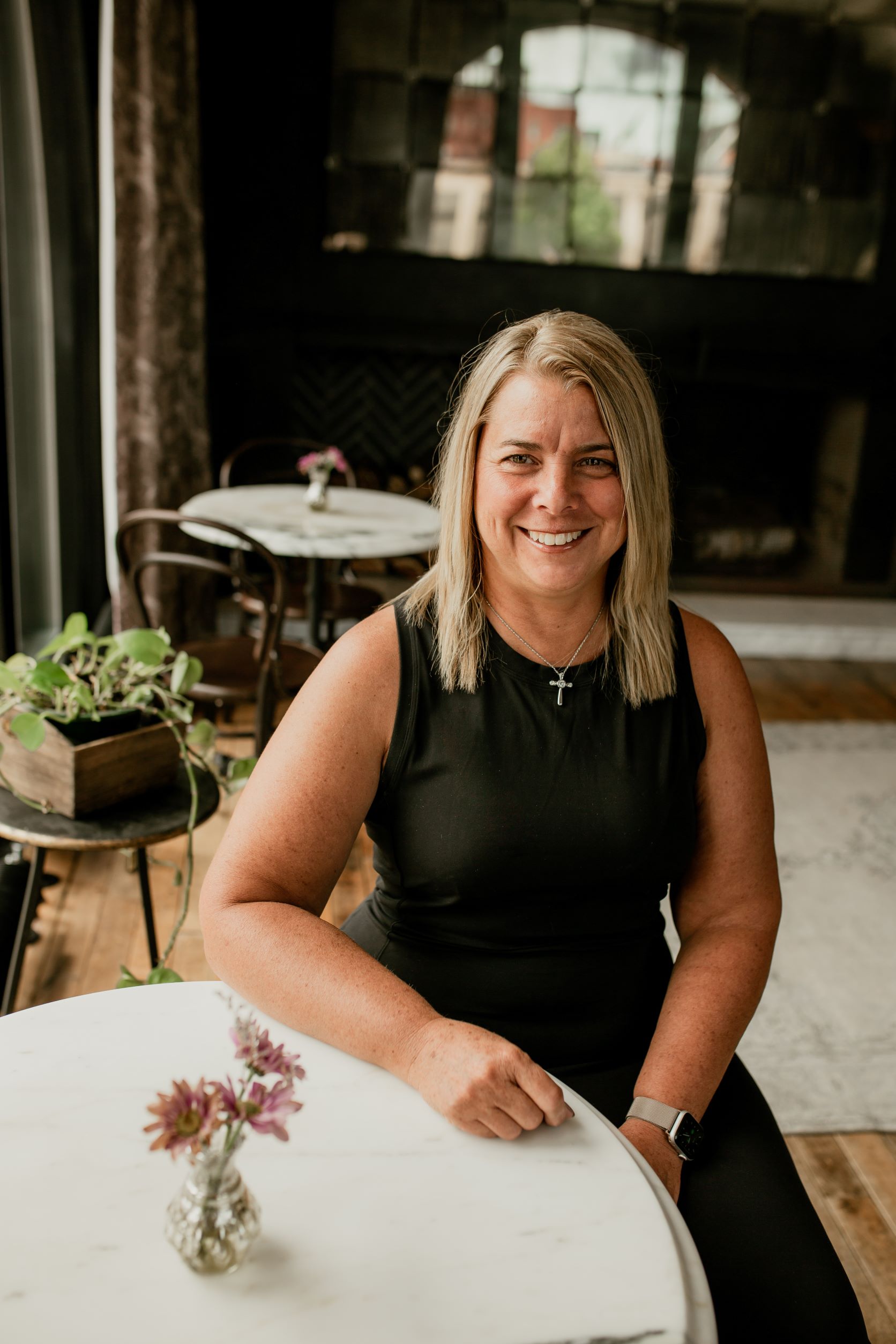
Episode 03
Recession Proofing Your Fiances with Sheri Miller PKC3 Accounting
About BizCast Greater La Crosse
We bring you news from the business community. From startups to experienced problem solvers, you’ll get in-depth insight on the challenges and opportunities of doing business in Greater La Crosse. Our show is a collaboration between WIZMNews.com and BizNews Greater La Crosse ( GreaterLaCrosse.media ).
Transcript
Sheri Miller 0:00
A lot of people get nervous when they see the economy dive and then markets dive. We all start to panic, but for a lot of us, we have a long time term horizon, and it will come back. It always, historically does.
Vicki Markussen 0:12
Welcome to Greater la Crosse BizCast — news from the business community. I’m your host, Vicki Markussen. Joining me today is Sherry Miller. She is the owner of PKC3, which is a accounting firm in Onalaska. Sheri, we’re going to talk about finances. Everybody needs to know what you’re about to talk about. We of course, are having lots of conversations about a recession. Are we in it? Are we not in it? There’s lots of interesting indicators that are and aren’t performing the way people expect. But from a personal level, personal finances, what should people be paying attention to?
Sheri Miller 0:51
We’re looking at the economic indicator numbers of the GDP, which has been showing a decline, we’re looking at housing starting to decline now with interest rates going up. Employment numbers, while they’re slowing, it’s kind of starting to show that that’s going to become an unemployment issue down the road. We’re seeing already some of the large businesses are putting hiring freezes on and are laying people off. People aren’t switching jobs as frequently. I think people need to start realizing that the economy is going to continue to probably slow with interest rates going up gas prices, filtering through the whole economy. Let’s face it, fuel kills the economy, right. And so when that goes up, everyone’s costs go up.
Vicki Markussen 1:39
Obviously, that impacts how much money we’re spending on things. With all these indicators that you’re saying what are five things people should be doing to recession proof their finances,
Sheri Miller 1:49
1) Make a budget and stick to that budget and do it through good times and bad times. 2) Cut down on unnecessary expenses, which I think a lot of us probably have done because when we go to the grocery store, we’re buying the necessities versus the luxury items, because we just plain can afford it when we have a budget. 3) Have an emergency savings fund established. If you don’t have one established already, start putting towards it as much as you can each pay period. If you can’t do it per pay period as much as you can, as you can. Six months is a good starting point to have saved or set aside in savings. You want it to be somewhat of a liquid savings. You don’t want it tied up. If you lose your job unexpectedly in the recession, then you can have it set aside and you don’t have to worry about penalties for removing it. 4) I would not try to make emotional decisions in terms of financial, let’s say I have investments in a 401k, people get nervous when they see the economy dive and then markets dive, we all start to panic. But for a lot of us, we have a long time term horizon and it will come back. It always historically has. If you have a shorter window, then you need to be talking to some investment advisor that you trust. Don’t make emotional decisions, make smart, educated, informed decisions. 5) I would say in good times to come, don’t change your plan, stick to your budget. Put extra money aside when you come upon good times, or pay down debt more in the good times. If you have credit card debt, I would pay that down first or higher interest type debt. If you’re fortunate and you don’t have too much debt, sock more away into your emergency fund or make good investment decisions. Again, talk to your investment advisor,
That good old debt snowball, so to speak. Once you start paying it off, you get more and more money that helps you with the needs versus wants spending. So budget is easy. The needs / wants, okay, that that’s a impulse type of thing. I’m going to touch on a couple of these. So the savings, obviously the investment, be in it for the long term gain. Then in good times pay down that debt. So the to me the savings and the debt — if you have someone who’s in debt right now, but you also don’t have the savings. So which one of those do you prioritize? Or is it equal?
I’d say it’s pretty equal, because it’s tempting to want to keep paying down the debt, but you want to also have a savings because if you lose your job, you can’t pay down that debt either. Correct?
Vicki Markussen 4:37
Right.
Sheri Miller 4:37
So the emergency funds important to get you through when you’re suddenly faced with I can’t have a job.
Vicki Markussen 4:45
One of the things that people need to be prepared for is, there’s some tax changes coming as they go to file their taxes. So what are those things that are upcoming that they should be aware of?
Sheri Miller 4:58
So everyone’s heard about the inflation Reduction Act that was put into place not too long ago, there were a few changes that came along with that for the individual. A lot of them doing with energy type credits. Credits are always a good thing, because credits are a reduction dollar per dollar on your tax liability. When you file your tax return at the time of filing,
Vicki Markussen 5:26
Right, so those aren’t going to come off your receipt for what you purchase, it comes at the time that you do your tax filing just so everybody knows,
Sheri Miller 5:33
Correct. Thank you. So there are some for your house when you purchase energy efficient type remodeling items like doors, energy efficient doors, windows, siding, solar. And the credit used to be where it was a once in a lifetime max credit. Now this with the Inflation Reduction Act, it’s an annual credit. And it used to be only for your primary residence. Now it’s changed. So it can be outside of just a primary residence. So if you have a vacation home, it will count towards that. And there are varying levels of the credit depending on what type of item you’re doing for your home. So you’ll want to talk to your tax advisor about what type of thing you’re doing. So they can give you the numbers. There’s also credits for electric vehicles. And it used to be the credit was only for brand new electric vehicles. But now with this one, it’s also for used electric vehicles.
Vicki Markussen 6:37
Nice. We just bought one of those.
Sheri Miller 6:39
Yes. So I think it it’s a percentage or up to $4,000. So but the max is $4,000 on a used.
Vicki Markussen 6:48
Fantastic.
Sheri Miller 6:49
It was 7500.
Vicki Markussen 6:52
Okay, if you can find one, because the used car market is crazy. But if you find a hybrid electric, you’ve got a tax credit coming. Oh, one of the tax things that you had mentioned while we were prepping for this was up to be prepared that some of the COVID tax savings, if you will, are not available. Do you want to touch on those?
Sheri Miller 7:12
Yes. So just a reminder to everyone the last two years, we’ve had so many COVID nice benefits, mainly, especially last year being the child tax credit was upped. And also there is child care credits that were increased. We no longer have those this year. So people should expect that taxes are going to be more normalized prior to COVID. They should expect to to have a higher tax bill compared to last year if they were in those realms last year of having those available credits or deductions. And so they might want to be prepared for their withholdings to be proper. So they can always go and check on the IRS website. There’s a withholding calculator to see where they’re sitting at. Or they could check with their tax advisor so that they’re not shocked at urine where they’re sitting.
Vicki Markussen 8:07
But as a tax preparer, what are those tips to say? Could you just help us out with this? What are those?
Sheri Miller 8:14
Oh, organization is the biggest, biggest thing we’d love to see. And bringing it all to us at one time versus piecemealing. If you have a quick question, just call and ask everyone would rather you ask upfront and get it right then you just guessing or thinking you know the answer and it ending up costing you a lot of money. Talk to us, the tax advisers, talk to investment advisors, talk to the experts and plan ahead and understand what you’re doing and what the ramifications are.
Vicki Markussen 8:47
I’m going to move us on to my common closer, what makes you passionate about what you do?
Sheri Miller 8:53
Well, what makes me passionate about what I do is I really enjoy learning. I know that’s really strange. And in the tax world. It’s ongoing, new and exciting and challenging and changing all the time. And then I love sharing that knowledge with other people. I love seeing them go really I didn’t know that wow. And then seeing how it opens up their minds and wow this applies to me this way and this applies to me that way or I know Susie down the block that they had this situation occur and and it’s just fun watching minds open.
Vicki Markussen 9:32
You get people to think of money in a very different way as opposed to just here comes a paycheck and there goes my expenses. They can and they they can control their money as opposed to controlling them. So I think you got an inner teacher in you too.
Sheri Miller 9:46
I think that’s what I’ve learned over the years
Vicki Markussen 9:49
That was Sheri Miller. She is owner of PKC3 which is an Onalaska accounting firm. You’ve been listening to the greater lacrosse biz cast news from the Business community we’ll catch you next week.





